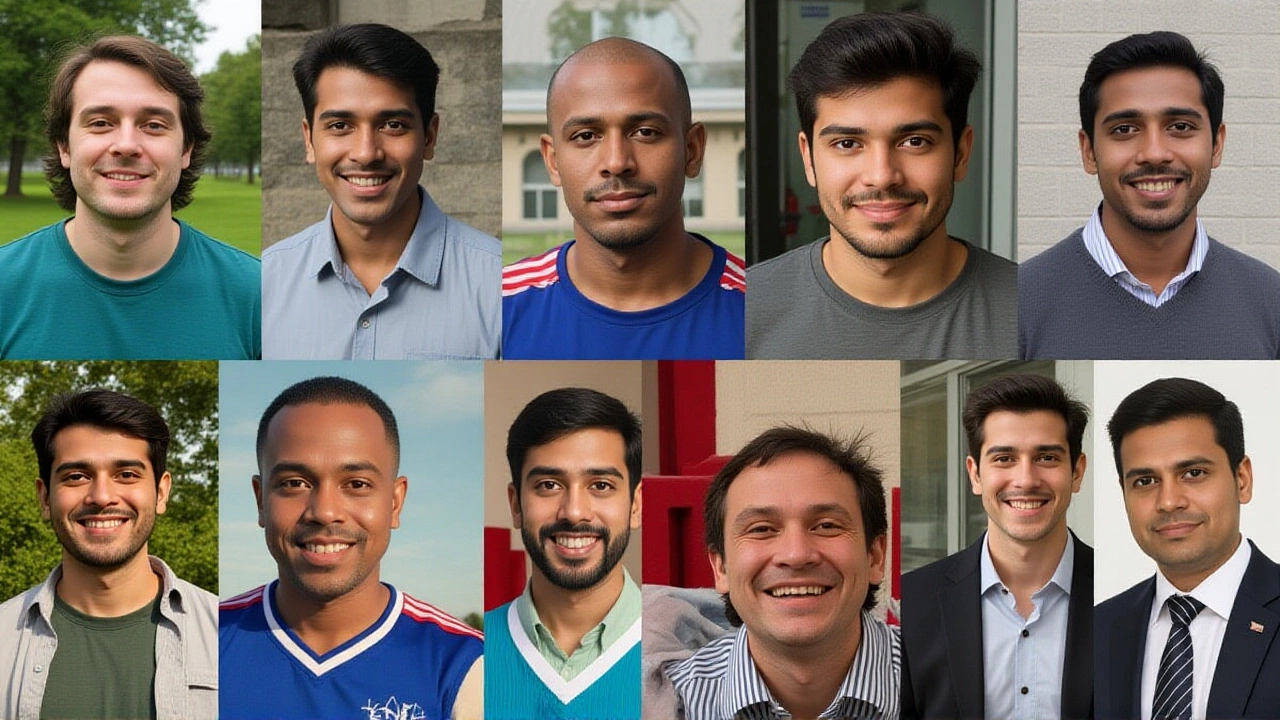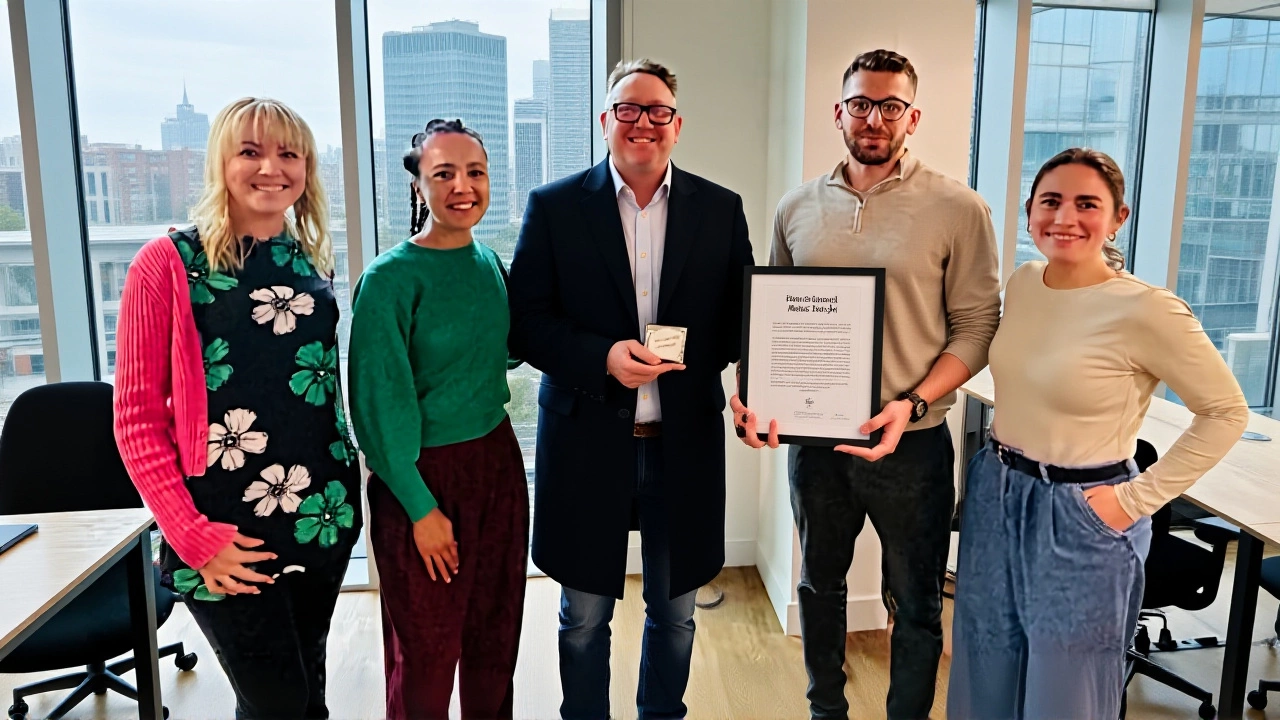International Men's Day 2025: 'Celebrating Men and Boys' on November 19

On International Men's Dayglobally, communities will pause on November 19, 2025 to honor the quiet heroes among us — fathers who wake before dawn, teachers who listen more than they lecture, neighbors who show up when no one’s watching. The theme this year, "Celebrating Men and Boys," isn’t just a slogan. It’s a reckoning. For too long, the stories of men’s struggles — their loneliness, their silence, their unspoken pain — have been tucked away like forgotten letters in a drawer. This day flips the script.
Roots in Trinidad, Reach Around the World
The origin of International Men's Day traces back to a university lecture hall in Trinidad and Tobago. In 1999, Dr. Jerome Teelucksingh, a history lecturer at the University of the West Indies, didn’t set out to launch a global movement. He wanted to fill a gap. While International Women's Day had long been a platform for advocacy, men’s issues — from suicide rates to custody battles to workplace fatalities — were often ignored or dismissed as "not feminist enough." Teelucksingh chose November 19 deliberately: it was the birthday of his father, a man who worked three jobs to keep his family fed, yet never complained.
He built the day around six pillars — not as buzzwords, but as lifelines. Each one was a direct response to real pain: the father too ashamed to see a therapist, the son told "boys don’t cry," the worker who died on the job with no one to speak his name. Today, those pillars guide everything from school programs in Canada to community forums in Nigeria.
The Six Pillars That Hold Up a Movement
These aren’t abstract ideals. They’re daily battles:
- Promoting positive male role models — not just athletes or CEOs, but the single dad who tutors kids after his shift, the retired veteran who volunteers at the youth center.
- Celebrating men’s contributions — to families, yes, but also to environmental cleanup crews, to hospice volunteers, to the men who quietly fundraise for cancer research after losing a brother.
- Focusing on men’s health — men die, on average, five years earlier than women in the U.S. and UK. Heart disease, prostate cancer, and suicide account for nearly 80% of preventable male deaths. Yet fewer than 30% of men visit a doctor annually.
- Highlighting discrimination — from biased child custody rulings to the lack of funding for male-specific domestic violence shelters.
- Improving gender relations — not as a zero-sum game, but as a partnership. When men feel safe being vulnerable, women feel safer speaking up.
- Building a better world — because no society thrives when half its population is told to suppress their humanity.
"It’s not about pitting genders against each other," said Marsh, a community organizer featured in The Daily Declaration. "It’s about recognizing that when a boy learns it’s weak to cry, he grows into a man who can’t ask for help. And when that man can’t ask for help, someone pays the price — maybe his wife, maybe his child, maybe himself."

What the Quotes Reveal About Modern Masculinity
Across social media and community boards, messages for International Men's Day 2025 are pouring in. They’re not about trophies or titles. They’re about tenderness.
"A great man isn’t defined by his strength, but by the gentleness he chooses to show," reads one widely shared post. Another: "Real masculinity is the courage to be kind in a world that often forgets kindness." And perhaps the most haunting: "Strong men lift weights; stronger men lift people."
These aren’t just feel-good quotes. They’re a cultural correction. For decades, masculinity was sold as stoicism, dominance, silence. Now, young men are rewriting the script — in classrooms, in locker rooms, in therapy groups. In London, a nonprofit called Boys to Men has seen a 40% surge in enrollment since 2022. Their curriculum? Emotional literacy. Consent education. Grief counseling.
Why This Matters Beyond One Day
Look at the data: suicide is the leading cause of death for men under 45 in the U.S. and UK. In Australia, male suicide rates are nearly four times higher than female rates. In India, farmers — often the backbone of rural communities — take their lives at alarming rates, many after years of silence about debt and shame.
International Men's Day isn’t a celebration of patriarchy. It’s a protest against its decay. It’s saying: Men are not problems to be fixed. They are people to be understood. When a boy learns he can be gentle and strong, he becomes a father who doesn’t yell. A partner who listens. A friend who shows up.
And that’s the ripple effect. Every time a man says "I’m not okay," he gives permission to another to say it too. Every time a school teaches boys to name their feelings, it reduces violence. Every time a workplace offers mental health days without stigma, it saves lives.

What’s Next? The Movement Beyond November
The organizers behind International Men's Day aren’t stopping at hashtags. In 2025, they’re launching a global initiative called "The Mentorship Pact," encouraging every adult man to commit to mentoring at least one boy — whether a nephew, student, neighbor, or intern. The goal? To replace silence with guidance.
Meanwhile, governments are taking notice. The UK’s Department of Health recently allocated £2.3 million to male mental health outreach in underserved communities. In Canada, schools in Ontario now include gender-inclusive masculinity modules in grades 7–12. Even corporations are shifting: Unilever’s Men’s Health Initiative now funds free therapy sessions for male employees — and their sons.
"We don’t need more men who are tough," said Dr. Teelucksingh in a recent interview. "We need more men who are true."
Frequently Asked Questions
Why is International Men's Day on November 19?
November 19 was chosen by Dr. Jerome Teelucksingh as the birthday of his father, a man who embodied quiet strength and sacrifice. The date also aligns with the anniversary of the first recorded men’s health conference in 1999, held in Trinidad and Tobago. It’s not arbitrary — it’s personal, symbolic, and intentional.
How does International Men's Day differ from International Women's Day?
While both aim for gender equity, International Women’s Day historically focused on dismantling systemic oppression against women. International Men’s Day addresses overlooked male-specific issues: higher suicide rates, workplace fatalities, custody bias, and emotional isolation. It’s not competition — it’s complementarity. Both days recognize that equality requires understanding all sides of the equation.
What are the biggest challenges men face today?
The top three: mental health stigma, lack of access to male-specific healthcare, and social isolation. Men are 3.5 times more likely to die by suicide than women, yet only 36% seek counseling. Workplace culture often discourages vulnerability. And with declining family structures in many regions, many men lack emotional support networks — a silent crisis with deadly consequences.
How can I support men and boys in my community?
Start simple: ask the men in your life how they’re *really* doing — and mean it. Support local programs that offer mentorship, mental health resources, or fatherhood workshops. Challenge harmful stereotypes when you hear them — "boys don’t cry," "man up," etc. And if you’re a man yourself, model emotional honesty. Your vulnerability gives others permission to be brave.
Is International Men's Day only for men?
Absolutely not. The day is for everyone — mothers, sisters, partners, friends, and allies. Real change happens when women and girls advocate for men’s emotional well-being, when schools teach boys to respect themselves and others, and when communities create spaces where no one has to perform strength to be loved. Gender equality isn’t a zero-sum game.
What role do media and pop culture play in shaping masculinity?
For decades, Hollywood and advertising sold masculinity as aggression, dominance, and emotional suppression. But recent shifts — from Marvel’s Black Panther to films like The Father and TV shows like Ted Lasso — are rewriting the narrative. When boys see men cry, ask for help, or choose kindness over control, they internalize a new blueprint. Representation matters — especially for boys who don’t see themselves in the old scripts.
